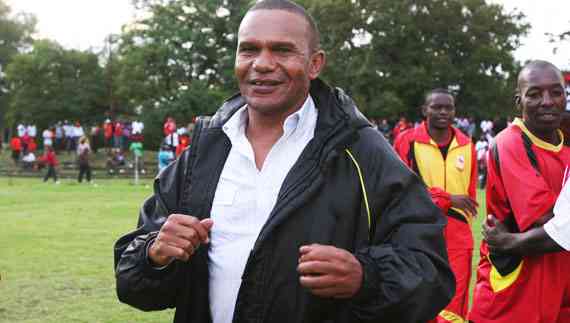
Air Zimbabwe chief executive officer, Innocent Mavhunga, did not have a sleepless night when one of their planes flew a single customer to Harare from Victoria Falls over the weekend.
For an airliner that has been grounded for two months and slowly feeling its way into the sky, that was probably acceptable to him.
“There is nothing unusual about that. We have not been operating for the past two months and we only resumed on Friday. We are re-entering the market so to speak,” Mavhunga told the State-run Herald.
Mavhunga said it would take the airline three to six months to resume normal loads but in the meantime they have to keep flying.
Brief research on costs indicated that a passenger pays an average of $255 for a return ticket to fly from Harare to Victoria Falls, a journey that requires about 3 200 litres of Jet A1 for Boeing 737 plane and 600 litres per hour for an AM60 aircraft.
There are additional costs in landing fees, Meteorological Department services and navigation which also have to be paid by the airline. Air Zim’s planes have been grounded for a couple of months, leaving passengers stranded and debts mounting.
A local aviation expert told NewsDay there were a lot off issues that had to be addressed before the airline could start attracting meaningful numbers and return to profitability.
“The same pilots that were on strike are the ones that have returned to work on almost the same conditions of service. Customers have to be convinced that if they fly with Air Zimbabwe they will be able to make it to their destination on time or be able to catch connecting flights.
- Chamisa under fire over US$120K donation
- Mavhunga puts DeMbare into Chibuku quarterfinals
- Pension funds bet on Cabora Bassa oilfields
- Councils defy govt fire tender directive
Keep Reading
“It’s not going to be easy. The board has its work cut out. The sad thing is that for as long as the airline fails to attract enough numbers it will be making losses,” the expert said.
Air Zimbabwe board chairperson Jonathan Kadzura recently told the local media that his board had been frustrated by the government which has been disregarding the board’s proposed turnaround plan.
The government is the major shareholder in Air Zim. Several foreign airlines have made significant inroads into the routes that Air Zimbabwe had been operating and it would be a herculean task for the airliner to gain back its market share, given its tainted record.
Air Zimbabwe has pulled out of 18 routes from 25 and scaled down on the number of flights per week in a move meant to “rationalise operations and contain costs”.
While the airline was withdrawing from these routes citing “viability” challenges, its competitors have flown in to fill the void.
According to the Tourism Trends and Statistics Report 2010, prepared by the Zimbabwe Tourism Authority (ZTA), tourist arrivals jumped to 2 239 165, representing an 11% increase from the 2009 figure of 2 017 264.
The report notes that Air Zimbabwe experienced a decline in its market share from 27, 1% to 22, 1% last year.
Major beneficiaries of the change in fortunes at the national airliner were Kenya Airways up to 7,5% from 6,1%, Ethiopian Airways from 4% to 6, 8% while there were marginal increases for Air Malawi from 0,9% to 1% and Air Botswana from 0,8% to 1,2%.
The aviation expert said constant intervention by the board in the day-to-day operations of the airline was not healthy as it rendered the airline’s management irrelevant.
He said the government, as the shareholder, simply had to put in place a competent board with the requisite skills to run an airline and trust it to deliver without its meddling.
“Pilots now know they can avoid senior management by going directly to the parent ministry. This does not augur well for the management, which is supposed to be in charge of everyday operations,” he said.
The expert said Air Zimbabwe should engage the International Air Transport Association (IATA) and the Bank Settlement Plan in order to attract passengers across from different markets. “Without IATA, it will be difficult for the airline to increase its passenger update.
“Air Zimbabwe has to go back onto the global aviation system of doing business. As it stands, it is operating in isolation and it’s difficult to see how it will be able to regain regional and international passengers’ confidence,” asserted the expert. The troubled national airliner was suspended by the IATA over a $280 000 arrears in worldwide booking fees.











